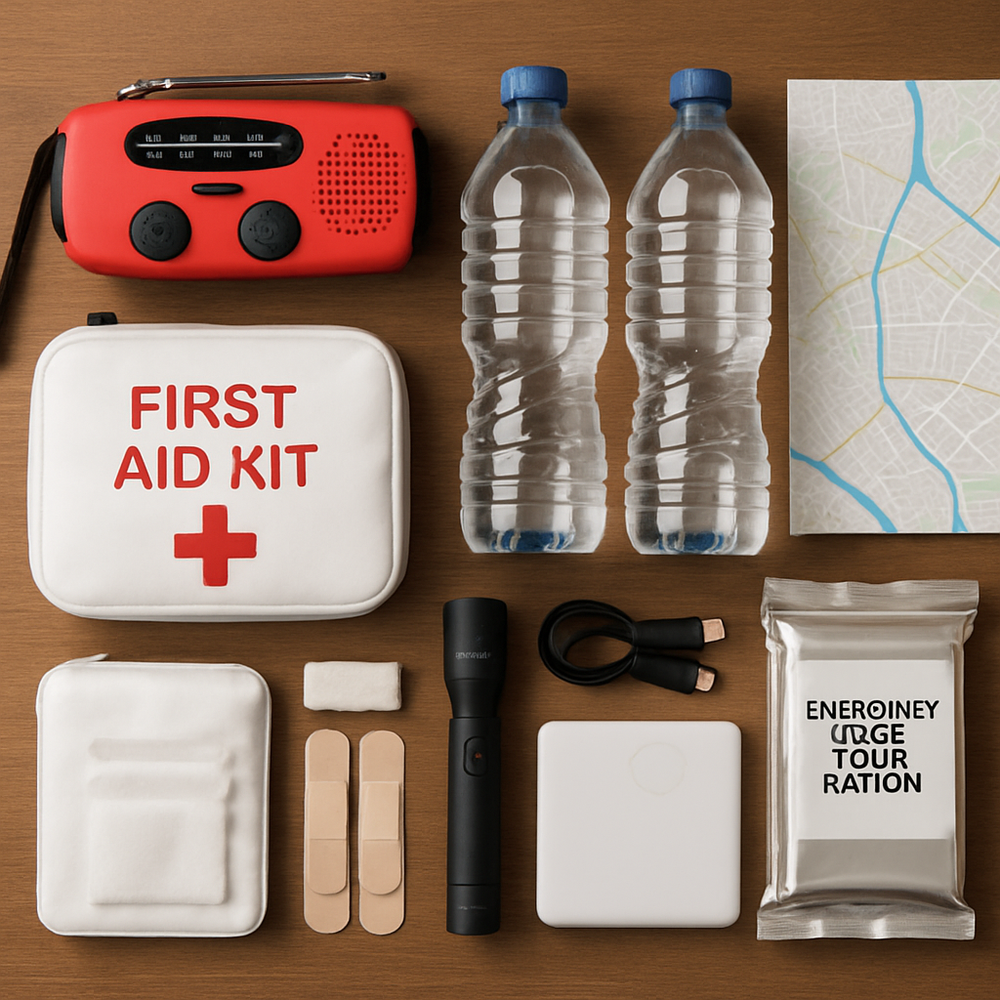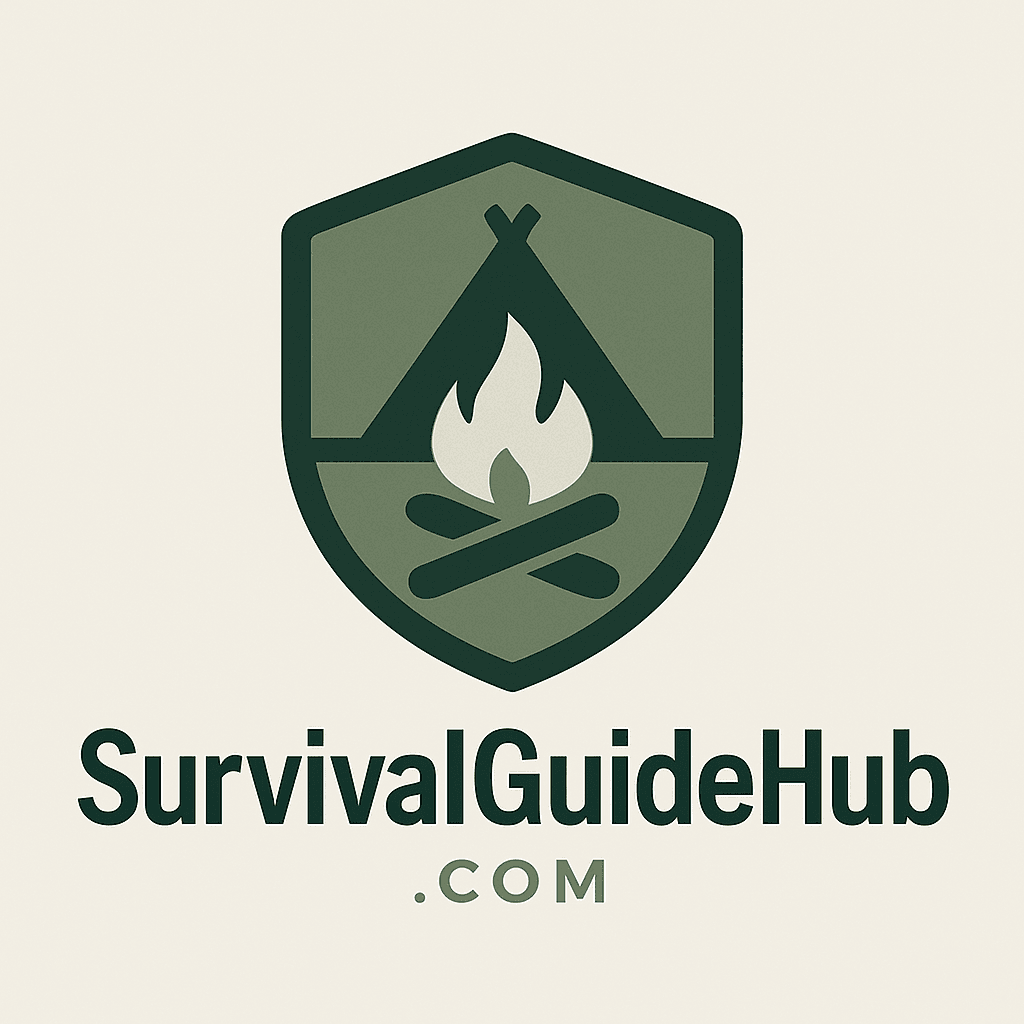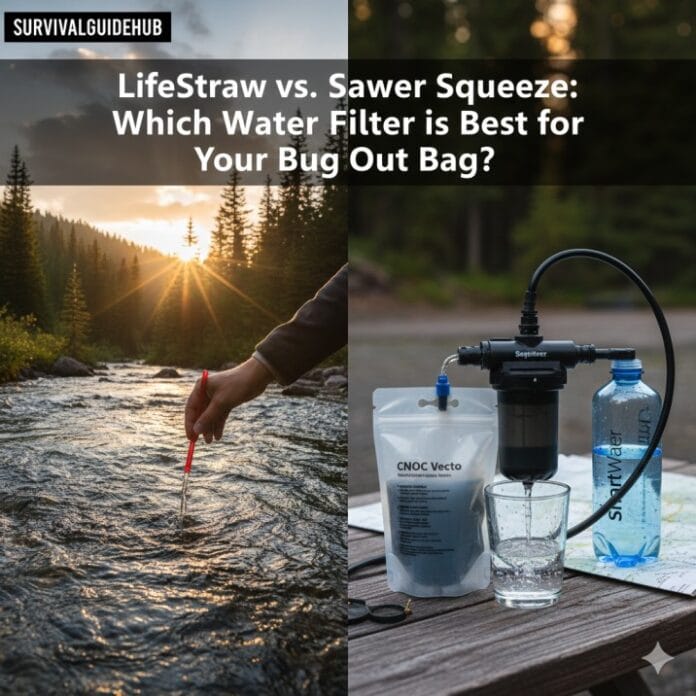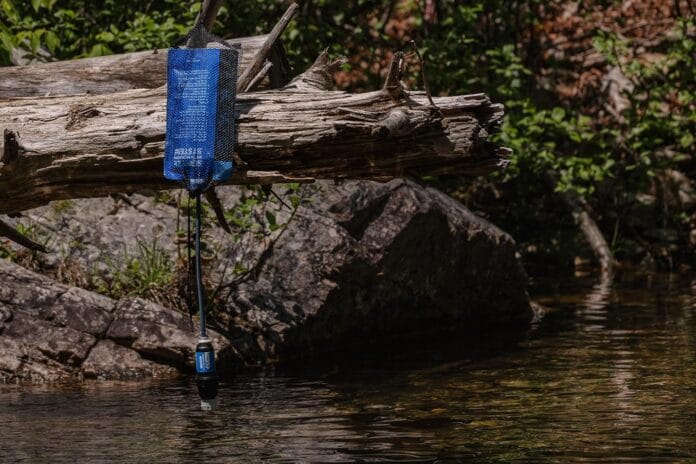Introduction: Why Urban Survival Skills Are More Critical Than Ever
In an unpredictable world, survival isn’t just about the wilderness. For most Americans, resilience is tested in urban environments. Urban survival skills are no longer niche; they’re essential. From natural disasters to power grid failures, cities present unique challenges. urban survival readiness
This guide explores seven essential urban survival skills to navigate city crises, protect loved ones, and ensure well-being when systems fail. We’ll cover practical steps, necessary gear, and crucial mindset shifts. Mastering these urban survival skills can transform chaos into calm, vulnerability into resilience. Let’s prepare to face any urban challenge.

1. Establishing a Robust Urban Emergency Communication Plan
In any crisis, communication is paramount. When traditional networks fail, how will you connect? A robust urban emergency communication plan is the cornerstone of effective urban survival skills.
The Importance of Redundancy in Urban Communication
Single communication methods are vulnerable. Cellular networks often fail first in urban disasters. A multi-layered approach is vital for strong urban survival skills.
•Designated Meeting Points: Establish primary and secondary meeting points within and outside your city. They should be accessible and familiar to all family members.
•Out-of-State Contact: Designate an out-of-state relative or friend as a central contact. Long-distance calls are often easier in regional emergencies. Ensure all family members have this contact.
•Low-Tech Communication: Analog methods are powerful. A pre-arranged message board or written notes at designated spots can work. Consider walkie-talkies or FRS/GMRS radios for short-range communication. urban survival techniques
Essential Communication Gear for Urban Environments
Beyond phones, specific tools boost communication:
•Hand-Crank/Solar-Powered NOAA Weather Radio: Essential for emergency broadcasts, weather alerts, and official instructions. Look for USB charging ports.
•Two-Way Radios (Walkie-Talkies): Invaluable for short-range (1-5 miles) communication in urban density. Use standard or rechargeable batteries.
•Satellite Messenger/Communicator: For extreme scenarios or no cellular service, devices like the Garmin inReach Mini 2 offer global two-way messaging and SOS. A significant investment, but offers peace of mind for serious urban survival skills practitioners.
•Whistles and Signal Mirrors: Simple, effective for attracting attention. Three short blasts on a whistle is a universal distress signal.
Regularly practice your communication plan. Drills ensure everyone knows their role and how to use equipment.
2. Water and Food Security in an Urban Crisis
Clean water and nutritious food are fundamental. In urban emergencies, these resources quickly become scarce. Securing them is a critical component of urban survival skills.
Water Procurement and Purification
City water systems can be compromised. Water purification is an indispensable urban survival skill.
•Water Storage: Store at least one gallon per person per day for a minimum of three days, ideally more. Consider larger containers or a water bob for bathtubs if a disaster is imminent. This is your first line of defense.
•Identifying Water Sources: Beyond tap, consider rain collection, water heaters (drain from bottom), toilet tanks (not bowl), and swimming pools (with purification). Knowing these alternatives is a key urban survival skill.
•Purification Methods:
•Boiling: Most reliable. Boil for at least one minute to kill most pathogens.
•Chemical Purification: Tablets (iodine or chlorine dioxide) are compact and effective. Follow instructions.
•Filtration: Portable filters (Sawyer Mini, LifeStraw) remove bacteria and protozoa. Excellent for filtering questionable sources before boiling or chemical treatment, enhancing your urban survival skills.
Food Storage and Preparation
Supermarket shelves empty fast. A well-stocked pantry is vital for urban survival skills.
•Non-Perishable Food Supply: Aim for 3 days to 1 month of non-perishable foods. Focus on items needing no cooking, refrigeration, or water:
•Canned goods (fruits, vegetables, meats, beans)
•Dried fruits and nuts
•Granola/protein bars
•Peanut butter
•MREs or freeze-dried survival food for longer storage.
•Cooking Alternatives: For power outages, use a portable camping stove, small propane grill, or solar oven. Ensure adequate indoor ventilation.
•Food Rotation: Practice food rotation for freshness and to prevent waste. This is a crucial, often overlooked, aspect of urban survival skills.
3. Security and Self-Defense in an Urban Crisis
In a widespread urban crisis, social order breakdown can increase crime. Personal and home security become paramount. Developing effective strategies is a critical aspect of urban survival skills.
Home Security Measures
Your home is your sanctuary. Fortifying it is essential:
•Reinforce Entry Points: Strengthen doors with longer screws. Install solid core doors and security bars for windows. Secure sliding glass doors with a wooden dowel.
•Perimeter Awareness: Keep property well-lit and free of hiding spots. Trim bushes. Consider motion-activated lights and security cameras (battery/solar-powered).
•Neighborhood Watch: Collaborate with trusted neighbors. Mutual support and vigilance are invaluable. Knowing neighbors’ skills is a significant asset to collective urban survival skills.
Personal Self-Defense and Awareness
Physical confrontation is a last resort, but preparedness is vital for urban survival skills.
•Situational Awareness: Always be aware of surroundings. Avoid distractions. Pay attention to people, vehicles, and escape routes. Trust instincts.
•Self-Defense Training: Consider a basic course. Knowing how to defend yourself boosts confidence and deters attackers. Simple techniques can be life-saving.
•Non-Lethal Defense Tools: Pepper spray or a personal alarm provide escape windows. Understand local laws.
•Lethal Defense (if applicable/legal): If owning a firearm, ensure thorough training, legal compliance, and secure storage. De-escalation and avoidance are always goals, but a layered defense plan is key to urban survival skills.
Evacuation Security
If evacuation is necessary, maintaining security on the move is crucial:
•Travel in Groups: Safety in numbers. Travel with family or trusted friends.
•Discreet Movement: Avoid drawing attention. Blend in. Do not openly display valuable gear.
•Pre-Planned Routes: Plan multiple evacuation routes, avoiding gridlocked major roads. Scout routes for safe zones and hazards. This foresight is a cornerstone of advanced urban survival skills.
Avoidance is often the best defense. Being prepared, aware, and having a plan significantly reduces risk. urban resilience
4. Medical Preparedness and First Aid for Urban Emergencies
In an urban crisis, medical services may be limited. Basic medical knowledge and a well-stocked first aid kit are indispensable urban survival skills.
Building a Comprehensive Urban First Aid Kit
Beyond basic supplies, an urban emergency first aid kit needs to handle a wider range of injuries and illnesses. This is a critical investment in your urban survival skills.
•Trauma Supplies: Include tourniquets, hemostatic gauze, pressure bandages for severe bleeding.
•Wound Care: Bandages, sterile gauze, medical tape, antiseptic wipes, wound closure strips. Saline solution for irrigation.
•Medications: OTC pain relievers, anti-diarrhea, antihistamines, and prescription meds (30-day supply). EpiPen if needed.
•Tools: Trauma shears, tweezers, thermometer, medical gloves. CPR mask.
•Hygiene Supplies: Hand sanitizer, soap, feminine hygiene products. Crucial for preventing disease spread.
Basic First Aid and CPR Training
Knowing how to use supplies is vital. Training is one of the most impactful urban survival skills.
•CPR and AED Certification: Life-saving in cardiac emergencies. Offered by community centers and Red Cross.
•Basic First Aid Course: Learn to treat common injuries (cuts, burns, sprains, fractures). Understand shock, hypothermia, heatstroke.
•Wilderness First Aid (WFA) or Wilderness First Responder (WFR): Principles of prolonged patient care with limited resources are highly applicable to urban crises. preparedness
Managing Illness and Disease in a Crisis
In crowded urban settings, infectious disease risk increases due to sanitation issues. Your urban survival skills should include preventative measures.
•Sanitation: Strict hand hygiene. Dispose of waste properly to prevent germs.
•Isolation: Isolate ill family members to prevent spread.
•Knowledge of Symptoms: Familiarize yourself with common illness symptoms and management. Understanding dehydration and oral rehydration salts is a vital urban survival skill.
Regularly check expiration dates and rotate supplies. Consider refresher courses. Your ability to provide immediate medical care is crucial, making medical preparedness a cornerstone of effective urban survival skills.
5. Power and Energy Independence in the Urban Landscape
Modern urban life relies on power. A prolonged outage turns urban environments into survival scenarios. Developing power and energy independence is a crucial aspect of urban survival skills.
Alternative Power Sources for Urban Dwellers
Diversifying energy sources maintains normalcy during blackouts. These solutions enhance your urban survival skills.
•Portable Power Stations/Solar Generators: Large batteries with AC outlets, charged via solar, wall, or car. Quiet, emission-free, power small appliances, phones, lights. Look for sufficient wattage/capacity. A Jackery Explorer 1000 Portable Power Station is versatile and portable, providing reliable power during outages. Find more on Amazon.
•Solar Chargers: Small panels for USB devices (phones, tablets, power banks). Excellent for communication and information access.
•Battery Banks/Power Banks: Essential for mobile devices. Stock various sizes, keep charged.
•Propane/Gas Generators (with caution): Powerful, but require fuel, produce noise and fumes, and must be outdoors. Viable for short outages, but with logistical challenges. Prioritize safety and ventilation.
•Rechargeable Batteries: Invest in rechargeable AA, AAA, C, D batteries and a solar/hand-crank charger. Many essential devices rely on these.
Energy Conservation and Management
Conserving energy is paramount, extending your limited supply. This is a fundamental urban survival skill.
•Efficient Lighting: Use LED lanterns, headlamps, flashlights. Avoid candles. Prioritize lighting for safety.
•Passive Heating/Cooling: Use blankets, layers, insulated spaces for warmth. For cooling, open windows at night, close blinds, use battery fans. Understanding home thermal properties is a key urban survival skill.
•Prioritize Devices: Power only essential devices (communication, medical). Unplug non-essentials to prevent phantom drain.
Fuel Storage and Safety
Safe fuel storage is critical in urban environments.
•Small Quantities: Store small, manageable fuel quantities (gasoline, propane) in approved containers in well-ventilated areas, away from living spaces and ignition sources. Consider a secure outdoor shed.
•Stabilizers: Use fuel stabilizers for gasoline.
•Propane Tanks: Store upright and outdoors, away from direct sunlight/heat. Ensure secure connections.
survival strategies
6. Navigation and Evacuation Planning for Urban Scenarios
While sheltering in place is ideal, evacuation may be necessary. Knowing how to navigate an urban environment without traditional tools and having a rehearsed evacuation plan are paramount urban survival skills.
Mastering Urban Navigation Without GPS
GPS signals can be jammed, batteries dead, or towers down. Relying solely on digital navigation is an oversight. Analog navigation urban survival skills are essential.
•Physical Maps: Invest in detailed, up-to-date physical maps of your city and surroundings. Learn to read them, understand scale, and identify landmarks. Mark safe zones, hazards, and multiple routes. This is a foundational urban survival skill.
•Compass Skills: Learn to use a traditional compass with your map. Understand declination and orientation. Knowing cardinal directions is invaluable.
•Landmark Recognition: Familiarize yourself with prominent landmarks, public buildings, and natural features. These serve as visual cues. Practice identifying them daily.
•Celestial Navigation (Basic): Knowing how to find true north using the sun or North Star is a life-saving basic urban survival skill.
Developing a Comprehensive Evacuation Plan
An evacuation plan is about leaving safely and efficiently, with a clear destination and contingencies. This is a crucial aspect of urban survival skills.
•Go-Bag/Bug-Out Bag (BOB): Prepare a lightweight, portable bag for each family member with 72-hour supplies: water, non-perishable food, first-aid, communication, clothes, documents, cash. Everyone should know where their BOB is and how to carry it.
•Multiple Routes: Plan at least three evacuation routes from home to safe locations. Avoid gridlocked highways. Include walking routes.
•Rendezvous Points: Establish primary and secondary rendezvous points along each route for separated family members. They should be identifiable and safe.
•Vehicle Preparedness: Keep fuel tank at least half full. Have a vehicle emergency kit (jumper cables, tools, tire repair, water, food). Consider a hidden spare key.
•Practice Drills: Regularly practice evacuation with family. This identifies weaknesses, familiarizes routes, and builds muscle memory for quick, calm execution. urban preparedness
Considerations for Urban Evacuation
Evacuating urban areas presents unique challenges:
•Crowd Management: Be prepared for crowds and panic. Maintain composure. Stick to crowd edges.
•Security: Travel discreetly. Avoid displaying valuables. Be aware of opportunists.
•Shelter-in-Place vs. Evacuate: Understand when each is appropriate. Follow official instructions, but be prepared to decide if communication is down.
Effective navigation and a practiced evacuation plan are about empowerment. urban survival readiness
7. Mindset and Community Building: The Unsung Urban Survival Skills
urban survival knowledge
Cultivating a Resilient Mindset
Psychological preparedness is as important as physical. Calmness, clear thinking, and adaptability under pressure are cornerstones of urban survival skills.
•Acceptance and Adaptability: Things won’t be normal. Accept challenges, adapt plans. Rigidity is dangerous.
•Positive Mental Attitude: Focus on solutions. A positive outlook is contagious, maintaining morale. Avoid negative news/rumors.
Building a Resilient Community Network
No one survives alone. Your community is your greatest asset. Fostering strong relationships and mutual aid networks is a powerful urban survival skill.
•Know Your Neighbors: Introduce yourself. Understand their skills and resources. Exchange contact information.
•Form a Mutual Aid Group: Organize with trusted neighbors to share resources, skills, and responsibilities. Pool food, water, medical supplies, or establish a communication tree.
•Community Drills: Practice emergency scenarios with your group. Builds cohesion, identifies gaps.
•Share Knowledge: Educate neighbors about preparedness. A prepared community is safer. This amplifies collective urban survival skills.
•Volunteer: Volunteer with local emergency response. Helps others, provides training.
SEO Meta Description: Master urban survival skills with our guide to navigating city crises. Learn essential techniques for communication, water, food, security, medical preparedness, power, navigation, and mindset to thrive in any urban emergency.
URL: /urban-survival-skills-city-crisis-guide
External Link
For more in-depth information on emergency preparedness guidelines from the U.S. government, visit Ready.gov. This official resource provides comprehensive advice on preparing for various emergencies, complementing your urban survival skills.
Internal Link
To further enhance your preparedness, explore our article on Top 7 Emergency Supplies Every American Home Needs in 2025. This will provide additional insights into essential items for your home, strengthening your overall urban survival skills.
Suggested Image Alt Attribute
urban survival skills, city crisis preparedness, emergency communication, urban survival skills gear
Conclusion: The Path to Urban Resilience
Mastering urban survival skills is an ongoing journey, not a destination. It requires dedication, continuous learning, and a proactive approach to preparedness. By focusing on communication, water and food security, personal safety, medical readiness, energy independence, navigation, and fostering strong community ties, you build a robust foundation for urban resilience. Remember, the goal is not to live in fear, but to live with confidence, knowing you possess the knowledge and tools to face any challenge the urban landscape may present. Embrace these urban survival skills, and empower yourself and your community for a more secure future.






